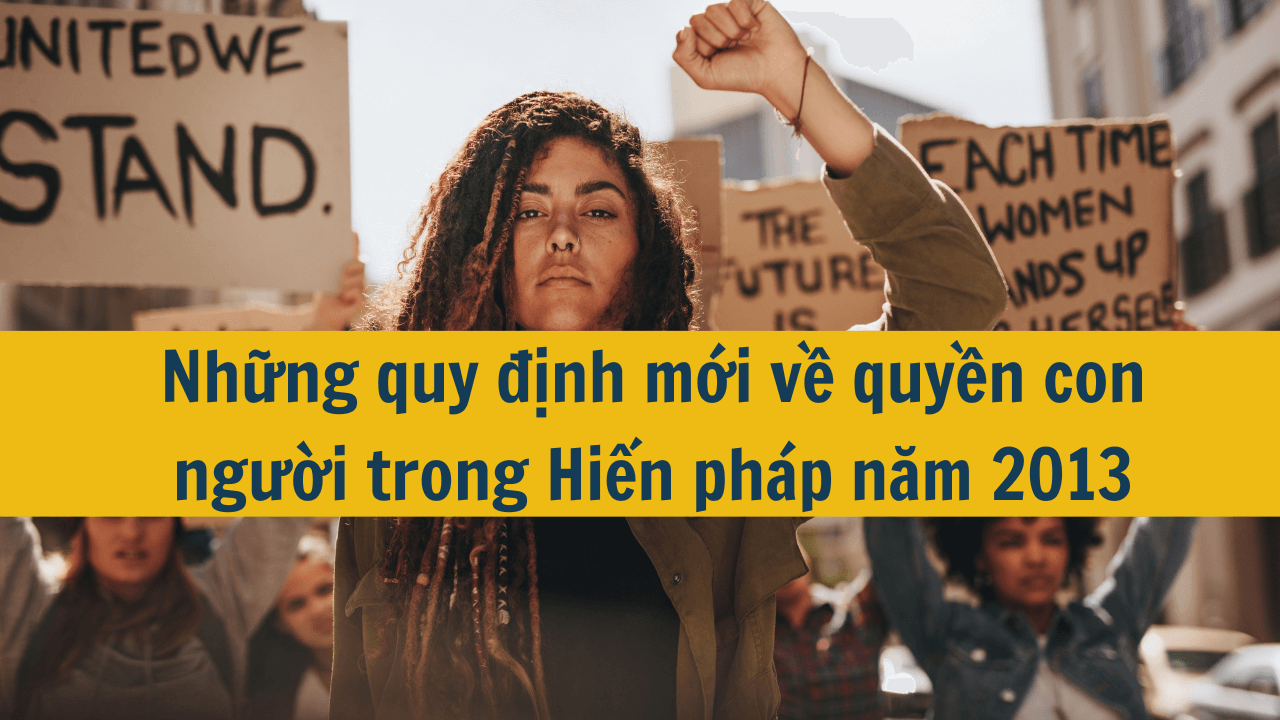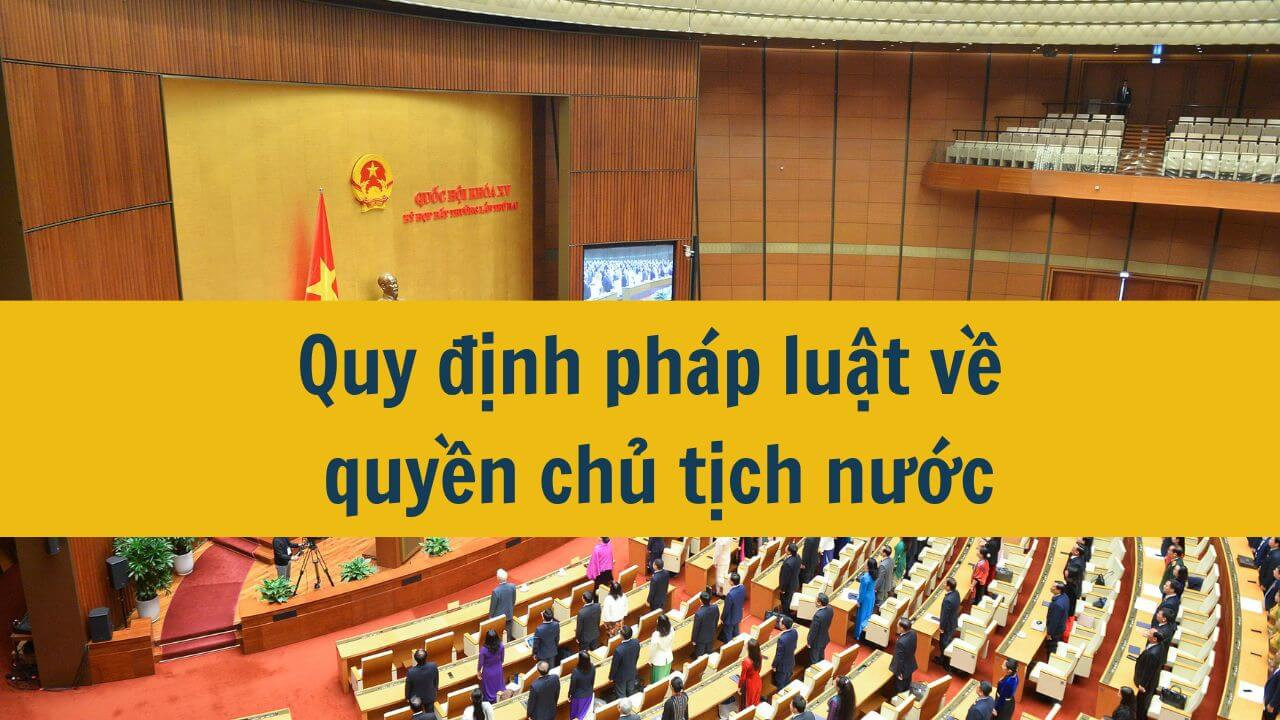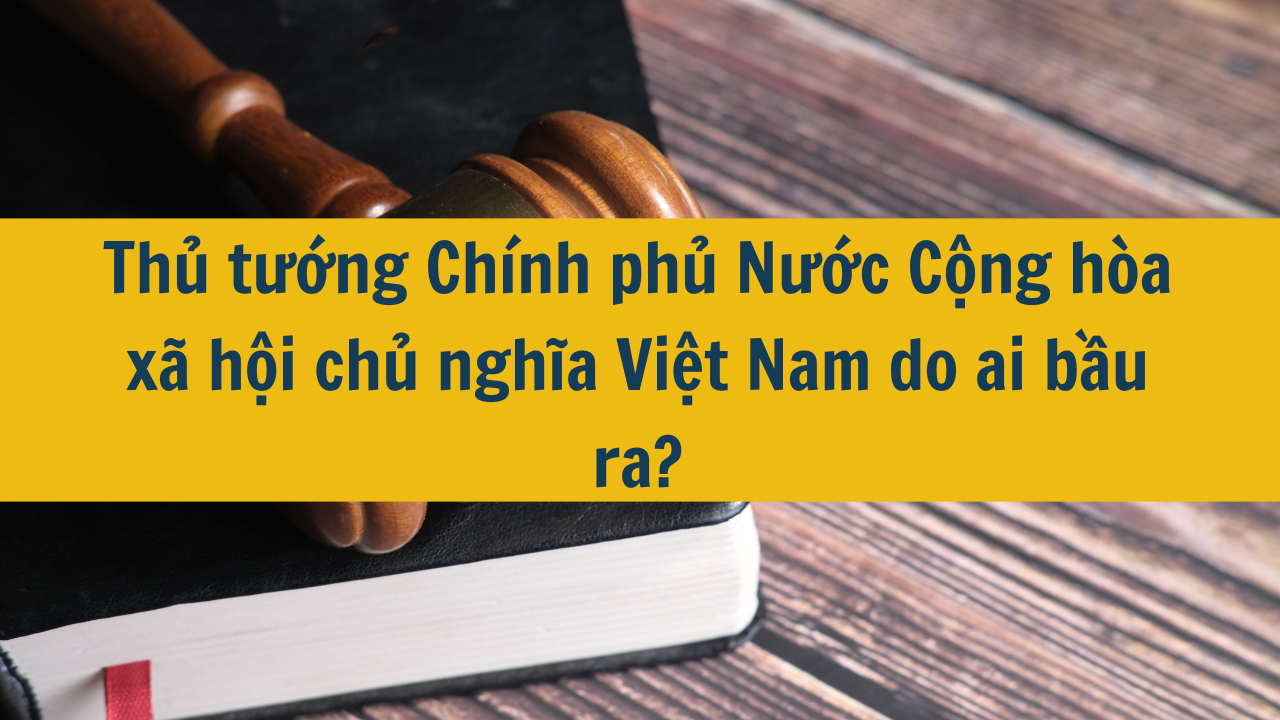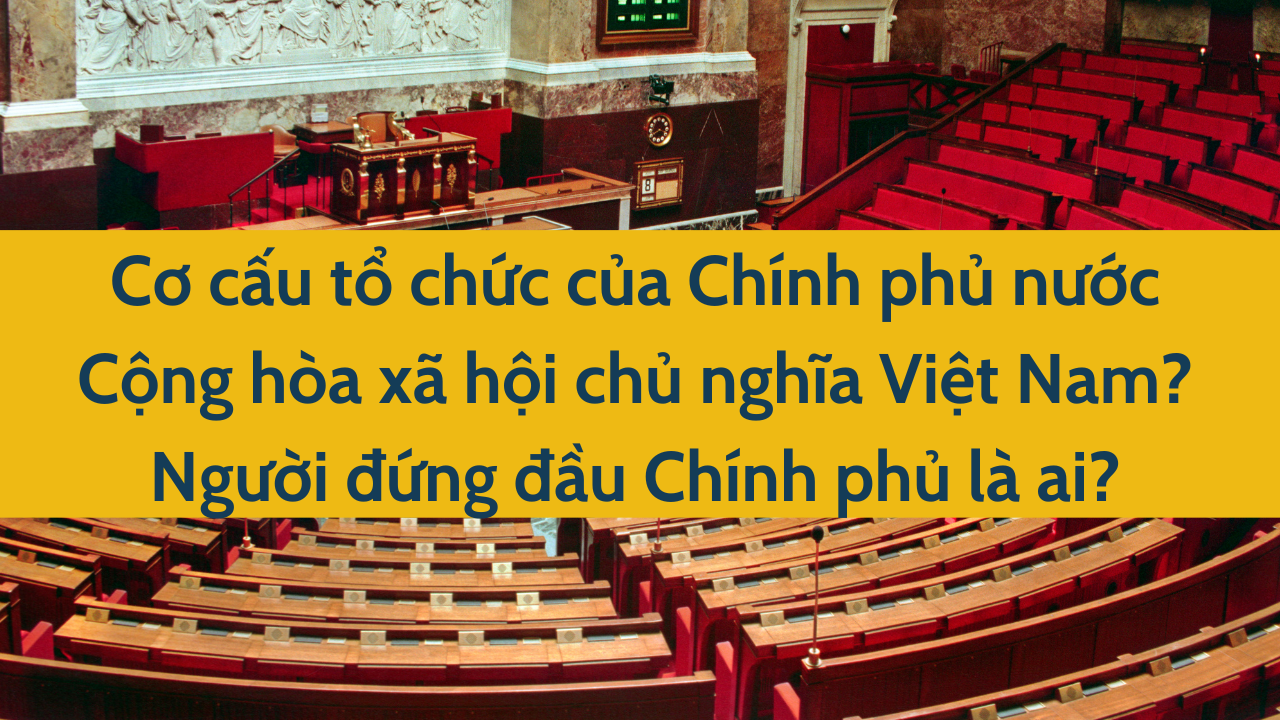 Tìm kiếm
Tìm kiếm
Chương V Hiến pháp 2013: Quốc hội
| Số hiệu: | khongso | Loại văn bản: | Hiến pháp |
| Nơi ban hành: | Quốc hội | Người ký: | Nguyễn Sinh Hùng |
| Ngày ban hành: | 28/11/2013 | Ngày hiệu lực: | 01/01/2014 |
| Ngày công báo: | 29/12/2013 | Số công báo: | Từ số 1003 đến số 1004 |
| Lĩnh vực: | Bộ máy hành chính, Quyền dân sự | Tình trạng: | Còn hiệu lực |
TÓM TẮT VĂN BẢN
Một số điểm mới trong Hiến pháp 2013
Ngày 28/11/2013, Quốc hội đã thông qua Hiến pháp 2013 và Nghị quyết 64/2013/QH13 quy định một số điểm thi hành Hiến pháp 2013.
Theo đó, Hiến pháp 2013 có hiệu lực kể từ ngày 01/01/2014 và có nhiều điểm mới so với Hiến pháp 1992 (Chỉ giữ nguyên 7 điều, bổ sung 12 điều mới và sửa đổi 101 điều), đương cử như:
- Chương X là quy định mới hoàn toàn về Hội đồng bầu cử quốc gia, Kiểm toán nhà nước;
- Ghi nhận quyền sống; quy định quyền hiến mô, bộ phận cơ thể người, hiến xác;
- Mọi người có quyền tự do kinh doanh trong những ngành nghề mà pháp luật không cấm (đây là quy định tiến bộ so với Hiến pháp 1992);
Đồng thời quy định, các văn bản pháp luật ban hành trước ngày 01/01/2014 phải được rà soát lại để sửa đổi, bổ sung hoặc ban hành mới cho phù hợp với Hiến pháp 2013.
Việc sửa đổi Luật tổ chức Quốc hội, Chính phủ, Tòa án nhân dân; ban hành mới Luật tổ chức chính quyền địa phương… phải được trình Quốc hội xem xét thông qua chậm nhất vào tháng 10/2015.
Văn bản tiếng việt
Văn bản tiếng anh
Quốc hội là cơ quan đại biểu cao nhất của Nhân dân, cơ quan quyền lực nhà nước cao nhất của nước Cộng hòa xã hội chủ nghĩa Việt Nam.
Quốc hội thực hiện quyền lập hiến, quyền lập pháp, quyết định các vấn đề quan trọng của đất nước và giám sát tối cao đối với hoạt động của Nhà nước.
Quốc hội có những nhiệm vụ và quyền hạn sau đây:
1. Làm Hiến pháp và sửa đổi Hiến pháp; làm luật và sửa đổi luật;
2. Thực hiện quyền giám sát tối cao việc tuân theo Hiến pháp, luật và nghị quyết của Quốc hội; xét báo cáo công tác của Chủ tịch nước, Ủy ban thường vụ Quốc hội, Chính phủ, Tòa án nhân dân tối cao, Viện kiểm sát nhân dân tối cao, Hội đồng bầu cử quốc gia, Kiểm toán nhà nước và cơ quan khác do Quốc hội thành lập;
3. Quyết định mục tiêu, chỉ tiêu, chính sách, nhiệm vụ cơ bản phát triển kinh tế - xã hội của đất nước;
4. Quyết định chính sách cơ bản về tài chính, tiền tệ quốc gia; quy định, sửa đổi hoặc bãi bỏ các thứ thuế; quyết định phân chia các khoản thu và nhiệm vụ chi giữa ngân sách trung ương và ngân sách địa phương; quyết định mức giới hạn an toàn nợ quốc gia, nợ công, nợ chính phủ; quyết định dự toán ngân sách nhà nước và phân bổ ngân sách trung ương, phê chuẩn quyết toán ngân sách nhà nước;
5. Quyết định chính sách dân tộc, chính sách tôn giáo của Nhà nước;
6. Quy định tổ chức và hoạt động của Quốc hội, Chủ tịch nước, Chính phủ, Tòa án nhân dân, Viện kiểm sát nhân dân, Hội đồng bầu cử quốc gia, Kiểm toán nhà nước, chính quyền địa phương và cơ quan khác do Quốc hội thành lập;
7. Bầu, miễn nhiệm, bãi nhiệm Chủ tịch nước, Phó Chủ tịch nước, Chủ tịch Quốc hội, Phó Chủ tịch Quốc hội, Ủy viên Ủy ban thường vụ Quốc hội, Chủ tịch Hội đồng dân tộc, Chủ nhiệm Ủy ban của Quốc hội, Thủ tướng Chính phủ, Chánh án Tòa án nhân dân tối cao, Viện trưởng Viện kiểm sát nhân dân tối cao, Chủ tịch Hội đồng bầu cử quốc gia, Tổng Kiểm toán nhà nước, người đứng đầu cơ quan khác do Quốc hội thành lập; phê chuẩn đề nghị bổ nhiệm, miễn nhiệm, cách chức Phó Thủ tướng Chính phủ, Bộ trưởng và thành viên khác của Chính phủ, Thẩm phán Tòa án nhân dân tối cao; phê chuẩn danh sách thành viên Hội đồng quốc phòng và an ninh, Hội đồng bầu cử quốc gia.
Sau khi được bầu, Chủ tịch nước, Chủ tịch Quốc hội, Thủ tướng Chính phủ, Chánh án Tòa án nhân dân tối cao phải tuyên thệ trung thành với Tổ quốc, Nhân dân và Hiến pháp;
8. Bỏ phiếu tín nhiệm đối với người giữ chức vụ do Quốc hội bầu hoặc phê chuẩn;
9. Quyết định thành lập, bãi bỏ bộ, cơ quan ngang bộ của Chính phủ; thành lập, giải thể, nhập, chia, điều chỉnh địa giới hành chính tỉnh, thành phố trực thuộc trung ương, đơn vị hành chính - kinh tế đặc biệt; thành lập, bãi bỏ cơ quan khác theo quy định của Hiến pháp và luật;
10. Bãi bỏ văn bản của Chủ tịch nước, Ủy ban thường vụ Quốc hội, Chính phủ, Thủ tướng Chính phủ, Tòa án nhân dân tối cao, Viện kiểm sát nhân dân tối cao trái với Hiến pháp, luật, nghị quyết của Quốc hội;
11. Quyết định đại xá;
12. Quy định hàm, cấp trong lực lượng vũ trang nhân dân, hàm, cấp ngoại giao và những hàm, cấp nhà nước khác; quy định huân chương, huy chương và danh hiệu vinh dự nhà nước;
13. Quyết định vấn đề chiến tranh và hòa bình; quy định về tình trạng khẩn cấp, các biện pháp đặc biệt khác bảo đảm quốc phòng và an ninh quốc gia;
14. Quyết định chính sách cơ bản về đối ngoại; phê chuẩn, quyết định gia nhập hoặc chấm dứt hiệu lực của điều ước quốc tế liên quan đến chiến tranh, hòa bình, chủ quyền quốc gia, tư cách thành viên của Cộng hòa xã hội chủ nghĩa Việt Nam tại các tổ chức quốc tế và khu vực quan trọng, các điều ước quốc tế về quyền con người, quyền và nghĩa vụ cơ bản của công dân và điều ước quốc tế khác trái với luật, nghị quyết của Quốc hội;
15. Quyết định trưng cầu ý dân.
1. Nhiệm kỳ của mỗi khóa Quốc hội là năm năm.
2. Sáu mươi ngày trước khi Quốc hội hết nhiệm kỳ, Quốc hội khóa mới phải được bầu xong.
3. Trong trường hợp đặc biệt, nếu được ít nhất hai phần ba tổng số đại biểu Quốc hội biểu quyết tán thành thì Quốc hội quyết định rút ngắn hoặc kéo dài nhiệm kỳ của mình theo đề nghị của Ủy ban thường vụ Quốc hội. Việc kéo dài nhiệm kỳ của một khóa Quốc hội không được quá mười hai tháng, trừ trường hợp có chiến tranh.
Chủ tịch Quốc hội chủ tọa các phiên họp của Quốc hội; ký chứng thực Hiến pháp, luật, nghị quyết của Quốc hội; lãnh đạo công tác của Ủy ban thường vụ Quốc hội; tổ chức thực hiện quan hệ đối ngoại của Quốc hội; giữ quan hệ với các đại biểu Quốc hội.
Các Phó Chủ tịch Quốc hội giúp Chủ tịch Quốc hội làm nhiệm vụ theo sự phân công của Chủ tịch Quốc hội.
1. Ủy ban thường vụ Quốc hội là cơ quan thường trực của Quốc hội.
2. Ủy ban thường vụ Quốc hội gồm Chủ tịch Quốc hội, các Phó Chủ tịch Quốc hội và các Ủy viên.
3. Số thành viên Ủy ban thường vụ Quốc hội do Quốc hội quyết định. Thành viên Ủy ban thường vụ Quốc hội không thể đồng thời là thành viên Chính phủ.
4. Ủy ban thường vụ Quốc hội của mỗi khóa Quốc hội thực hiện nhiệm vụ, quyền hạn của mình cho đến khi Quốc hội khóa mới bầu ra Ủy ban thường vụ Quốc hội.
Ủy ban thường vụ Quốc hội có những nhiệm vụ và quyền hạn sau đây:
1. Tổ chức việc chuẩn bị, triệu tập và chủ trì kỳ họp Quốc hội;
2. Ra pháp lệnh về những vấn đề được Quốc hội giao; giải thích Hiến pháp, luật, pháp lệnh;
3. Giám sát việc thi hành Hiến pháp, luật, nghị quyết của Quốc hội, pháp lệnh, nghị quyết của Ủy ban thường vụ Quốc hội; giám sát hoạt động của Chính phủ, Tòa án nhân dân tối cao, Viện kiểm sát nhân dân tối cao, Kiểm toán Nhà nước và cơ quan khác do Quốc hội thành lập;
4. Đình chỉ việc thi hành văn bản của Chính phủ, Thủ tướng Chính phủ, Tòa án nhân dân tối cao, Viện kiểm sát nhân dân tối cao trái với Hiến pháp, luật, nghị quyết của Quốc hội và trình Quốc hội quyết định việc bãi bỏ văn bản đó tại kỳ họp gần nhất; bãi bỏ văn bản của Chính phủ, Thủ tướng Chính phủ, Tòa án nhân dân tối cao, Viện kiểm sát nhân dân tối cao trái với pháp lệnh, nghị quyết của Ủy ban thường vụ Quốc hội;
5. Chỉ đạo, điều hòa, phối hợp hoạt động của Hội đồng dân tộc và các Ủy ban của Quốc hội; hướng dẫn và bảo đảm điều kiện hoạt động của đại biểu Quốc hội;
6. Đề nghị Quốc hội bầu, miễn nhiệm, bãi nhiệm Chủ tịch nước, Chủ tịch Quốc hội, Phó Chủ tịch Quốc hội, Ủy viên Ủy ban thường vụ Quốc hội, Chủ tịch Hội đồng dân tộc, Chủ nhiệm Ủy ban của Quốc hội, Chủ tịch Hội đồng bầu cử quốc gia, Tổng Kiểm toán nhà nước;
7. Giám sát và hướng dẫn hoạt động của Hội đồng nhân dân; bãi bỏ nghị quyết của Hội đồng nhân dân tỉnh, thành phố trực thuộc trung ương trái với Hiến pháp, luật và văn bản của cơ quan nhà nước cấp trên; giải tán Hội đồng nhân dân tỉnh, thành phố trực thuộc trung ương trong trường hợp Hội đồng nhân dân đó làm thiệt hại nghiêm trọng đến lợi ích của Nhân dân;
8. Quyết định thành lập, giải thể, nhập, chia, điều chỉnh địa giới đơn vị hành chính dưới tỉnh, thành phố trực thuộc trung ương;
9. Quyết định việc tuyên bố tình trạng chiến tranh trong trường hợp Quốc hội không thể họp được và báo cáo Quốc hội quyết định tại kỳ họp gần nhất;
10. Quyết định tổng động viên hoặc động viên cục bộ; ban bố, bãi bỏ tình trạng khẩn cấp trong cả nước hoặc ở từng địa phương;
11. Thực hiện quan hệ đối ngoại của Quốc hội;
12. Phê chuẩn đề nghị bổ nhiệm, miễn nhiệm đại sứ đặc mệnh toàn quyền của Cộng hòa xã hội chủ nghĩa Việt Nam;
13. Tổ chức trưng cầu ý dân theo quyết định của Quốc hội.
1. Hội đồng dân tộc gồm Chủ tịch, các Phó Chủ tịch và các Ủy viên. Chủ tịch Hội đồng dân tộc do Quốc hội bầu; các Phó Chủ tịch và các Ủy viên Hội đồng dân tộc do Ủy ban thường vụ Quốc hội phê chuẩn.
2. Hội đồng dân tộc nghiên cứu và kiến nghị với Quốc hội về công tác dân tộc; thực hiện quyền giám sát việc thi hành chính sách dân tộc, chương trình, kế hoạch phát triển kinh tế - xã hội miền núi và vùng đồng bào dân tộc thiểu số.
3. Chủ tịch Hội đồng dân tộc được mời tham dự phiên họp của Chính phủ bàn về việc thực hiện chính sách dân tộc. Khi ban hành quy định thực hiện chính sách dân tộc, Chính phủ phải lấy ý kiến của Hội đồng dân tộc.
4. Hội đồng dân tộc có những nhiệm vụ, quyền hạn khác như Ủy ban của Quốc hội quy định tại khoản 2 Điều 76.
1. Ủy ban của Quốc hội gồm Chủ nhiệm, các Phó Chủ nhiệm và các Ủy viên. Chủ nhiệm Ủy ban do Quốc hội bầu; các Phó Chủ nhiệm và các Ủy viên Ủy ban do Ủy ban thường vụ Quốc hội phê chuẩn.
2. Ủy ban của Quốc hội thẩm tra dự án luật, kiến nghị về luật, dự án khác và báo cáo được Quốc hội hoặc Ủy ban thường vụ Quốc hội giao; thực hiện quyền giám sát trong phạm vi nhiệm vụ, quyền hạn do luật định; kiến nghị những vấn đề thuộc phạm vi hoạt động của Ủy ban.
3. Việc thành lập, giải thể Ủy ban của Quốc hội do Quốc hội quyết định.
1. Hội đồng dân tộc, các Ủy ban của Quốc hội có quyền yêu cầu thành viên Chính phủ, Chánh án Tòa án nhân dân tối cao, Viện trưởng Viện kiểm sát nhân dân tối cao, Tổng Kiểm toán nhà nước và cá nhân hữu quan báo cáo, giải trình hoặc cung cấp tài liệu về những vấn đề cần thiết. Người được yêu cầu có trách nhiệm đáp ứng yêu cầu đó.
2. Các cơ quan nhà nước có trách nhiệm nghiên cứu và trả lời những kiến nghị của Hội đồng dân tộc và các Ủy ban của Quốc hội.
Khi cần thiết, Quốc hội thành lập Ủy ban lâm thời để nghiên cứu, thẩm tra một dự án hoặc điều tra về một vấn đề nhất định.
1. Đại biểu Quốc hội là người đại diện cho ý chí, nguyện vọng của Nhân dân ở đơn vị bầu cử ra mình và của Nhân dân cả nước.
2. Đại biểu Quốc hội liên hệ chặt chẽ với cử tri, chịu sự giám sát của cử tri; thu thập và phản ánh trung thực ý kiến, nguyện vọng của cử tri với Quốc hội, các cơ quan, tổ chức hữu quan; thực hiện chế độ tiếp xúc và báo cáo với cử tri về hoạt động của đại biểu và của Quốc hội; trả lời yêu cầu và kiến nghị của cử tri; theo dõi, đôn đốc việc giải quyết khiếu nại, tố cáo và hướng dẫn, giúp đỡ việc thực hiện quyền khiếu nại, tố cáo.
3. Đại biểu Quốc hội phổ biến và vận động Nhân dân thực hiện Hiến pháp và pháp luật.
1. Đại biểu Quốc hội có quyền chất vấn Chủ tịch nước, Chủ tịch Quốc hội, Thủ tướng Chính phủ, Bộ trưởng và các thành viên khác của Chính phủ, Chánh án Tòa án nhân dân tối cao, Viện trưởng Viện kiểm sát nhân dân tối cao, Tổng Kiểm toán Nhà nước.
2. Người bị chất vấn phải trả lời trước Quốc hội tại kỳ họp hoặc tại phiên họp Ủy ban thường vụ Quốc hội trong thời gian giữa hai kỳ họp Quốc hội; trong trường hợp cần thiết, Quốc hội, Ủy ban thường vụ Quốc hội cho trả lời bằng văn bản.
3. Đại biểu Quốc hội có quyền yêu cầu cơ quan, tổ chức, cá nhân cung cấp thông tin, tài liệu liên quan đến nhiệm vụ của cơ quan, tổ chức, cá nhân đó. Người đứng đầu cơ quan, tổ chức hoặc cá nhân có trách nhiệm trả lời những vấn đề mà đại biểu Quốc hội yêu cầu trong thời hạn luật định.
Không được bắt, giam giữ, khởi tố đại biểu Quốc hội nếu không có sự đồng ý của Quốc hội hoặc trong thời gian Quốc hội không họp không có sự đồng ý của Ủy ban thường vụ Quốc hội; trong trường hợp đại biểu Quốc hội phạm tội quả tang mà bị tạm giữ thì cơ quan tạm giữ phải lập tức báo cáo để Quốc hội hoặc Ủy ban thường vụ Quốc hội xem xét, quyết định.
1. Đại biểu Quốc hội có trách nhiệm thực hiện đầy đủ nhiệm vụ đại biểu, có quyền tham gia làm thành viên của Hội đồng dân tộc hoặc Ủy ban của Quốc hội.
2. Ủy ban thường vụ Quốc hội, Thủ tướng Chính phủ, Phó Thủ tướng Chính phủ, Bộ trưởng, Thủ trưởng cơ quan ngang bộ và các cơ quan khác của Nhà nước có trách nhiệm tạo điều kiện để đại biểu Quốc hội làm nhiệm vụ đại biểu.
3. Nhà nước bảo đảm kinh phí hoạt động của đại biểu Quốc hội.
1. Quốc hội họp công khai. Trong trường hợp cần thiết, theo đề nghị của Chủ tịch nước, Ủy ban thường vụ Quốc hội, Thủ tướng Chính phủ hoặc của ít nhất một phần ba tổng số đại biểu Quốc hội, Quốc hội quyết định họp kín.
2. Quốc hội họp mỗi năm hai kỳ. Trường hợp Chủ tịch nước, Ủy ban thường vụ Quốc hội, Thủ tướng Chính phủ hoặc ít nhất một phần ba tổng số đại biểu Quốc hội yêu cầu thì Quốc hội họp bất thường. Ủy ban thường vụ Quốc hội triệu tập kỳ họp Quốc hội.
3. Kỳ họp thứ nhất của Quốc hội khóa mới được triệu tập chậm nhất là sáu mươi ngày, kể từ ngày bầu cử đại biểu Quốc hội, do Chủ tịch Quốc hội khóa trước khai mạc và chủ tọa cho đến khi Quốc hội khóa mới bầu ra Chủ tịch Quốc hội.
1. Chủ tịch nước, Ủy ban thường vụ Quốc hội, Hội đồng dân tộc, Ủy ban của Quốc hội, Chính phủ, Tòa án nhân dân tối cao, Viện kiểm sát nhân dân tối cao, Kiểm toán nhà nước, Ủy ban trung ương Mặt trận Tổ quốc Việt Nam và cơ quan trung ương của tổ chức thành viên của Mặt trận có quyền trình dự án luật trước Quốc hội, trình dự án pháp lệnh trước Ủy ban thường vụ Quốc hội.
2. Đại biểu Quốc hội có quyền trình kiến nghị về luật, pháp lệnh và dự án luật, dự án pháp lệnh trước Quốc hội, Ủy ban thường vụ Quốc hội.
1. Luật, nghị quyết của Quốc hội phải được quá nửa tổng số đại biểu Quốc hội biểu quyết tán thành; trường hợp làm Hiến pháp, sửa đổi Hiến pháp, quyết định rút ngắn hoặc kéo dài nhiệm kỳ của Quốc hội, bãi nhiệm đại biểu Quốc hội phải được ít nhất hai phần ba tổng số đại biểu Quốc hội biểu quyết tán thành.
Pháp lệnh, nghị quyết của Ủy ban thường vụ Quốc hội phải được quá nửa tổng số thành viên Ủy ban thường vụ Quốc hội biểu quyết tán thành.
2. Luật, pháp lệnh phải được công bố chậm nhất là mười lăm ngày, kể từ ngày được thông qua, trừ trường hợp Chủ tịch nước đề nghị xem xét lại pháp lệnh.
The National Assembly is the highest representative body of the People and the highest state power body of the Socialist Republic of Vietnam.
The National Assembly shall exercise constitutional and legislative powers, decide on important issues for the country, and conduct the supreme oversight over the activities of the State.
The National Assembly has the following tasks and powers:
1. To make and amend the Constitution; to make and amend laws;
2. To exercise the power of supreme oversight over the observance of the Constitution, laws and resolutions of the National Assembly; to review work reports of the President, Standing Committee of the National Assembly, Government, Supreme People's Court, Supreme People's Procuracy, National Election Council, State Audit Office, and other agencies established by the National Assembly;
3. To decide on the country's major goals, targets, policies and tasks for socio-economic development;
4. To decide on fundamental national financial and monetary policies; to introduce, change or abolish taxes; to decide on the division of revenues and expenditures between the central and local budgets; to decide on the safe limits for national, public and government debts; to decide on state budget estimates and the allocation of the central budget; and to approve the final accounts of the state budget;
5. To decide on state policies on ethnicities and religion;
6. To regulate the organization and operation of the National Assembly, President, Government, People's Courts, People's Procuracies, National Election Council, State Audit Office, local administrations, and other agencies established by the National Assembly;
7. To elect, relieve from duty or remove from office the President, Vice Presidents, Chairperson and Vice Chairpersons of the National Assembly, members of the Standing Committee of the National Assembly, Chairperson of the Ethnic Council, Chairpersons of the Committees of the National Assembly, Prime Minister, Chief Justice of the Supreme People's Court, Procurator General of the Supreme People's Procuracy, Chairperson of the National Election Council, State Auditor General, and heads of other agencies established by the National Assembly; to approve proposals on the appointment, relief from duty or dismissal of the Deputy Prime Ministers, Ministers or other members of the Government, and Judges of the Supreme People’s Court; and to approve the lists of members of the National Defense and Security Council and the National Election Council.
After being elected, the President, Chairperson of the National Assembly, Prime Minister, and Chief Justice of the Supreme People’s Court shall take an oath of loyalty to the Fatherland, the People and the Constitution;
8. To conduct votes of confidence on persons holding positions elected or approved by the National Assembly;
9. To decide on the establishment or abolition of ministries or ministerial-level agencies of the Government; to establish, dissolve, consolidate, separate or adjust the administrative boundaries of, provinces, centrally run cities and special administrative-economic units; or to establish or abolish other agencies in accordance with the Constitution and law;
10. To annul documents of the President, Standing Committee of the National Assembly, Government, Prime Minister, Supreme People's Court and Supreme People's Procuracy that contravene the Constitution, laws or resolutions of the National Assembly;
11. To decide on a general amnesty;
12.To stipulate the titles and ranks in the people's armed forces, diplomatic titles and ranks, and other state titles and ranks; to institute orders, medals, and state honorary titles;
13. To decide on issues of war and peace; to determine states of emergency and other special measures to ensure national defense and security;
14. To decide on fundamental foreign policies; to ratify, or decide on the accession to, or withdrawal from, treaties related to war, peace, national sovereignty or the membership of the Socialist Republic of Vietnam in important international and regional organizations, treaties on human rights or fundamental rights and obligations of citizens, and other treaties that are not consistent with the laws or resolutions of the National Assembly;
15.To decide to hold referenda.
1. The term of the National Assembly is five years.
2. Sixty days before the expiration of the term of the National Assembly, a new National Assembly must be elected.
3. In special cases, the National Assembly may decide to shorten or extend its term, at the proposal of the Standing Committee of the National Assembly, if at least two-thirds of the total number of the National Assembly deputies vote for it. The extension of the term of the National Assembly must not exceed twelve months, except in wartime.
The Chairperson of the National Assembly shall preside over National Assembly sessions; authenticate by his or her signature the Constitution, laws and resolutions of the National Assembly; lead the work of the Standing Committee of the National Assembly; organize the conduct of the external relations of the National Assembly; and maintain a relationship with National Assembly deputies.
Vice Chairpersons of the National Assembly shall assist the Chairperson in his or her work as assigned by the Chairperson.
1. The Standing Committee of the National Assembly is the permanent body of the National Assembly.
2. The Standing Committee of the National Assembly is composed of the Chairperson, Vice Chairpersons and Members.
3. The number of members of the Standing Committee of the National Assembly shall be decided by the National Assembly. A member of the Standing Committee of the National Assembly may not concurrently be a member of the Government.
4. The Standing Committee of the National Assembly shall perform its tasks and exercise its powers until a new Standing Committee is elected by the succeeding National Assembly.
The Standing Committee of the National Assembly has the following tasks and powers:
1. To prepare, convene and preside over sessions of the National Assembly;
2. To enact ordinances on issues assigned to it by the National Assembly; to interpret the Constitution, laws and ordinances;
3. To oversee the implementation of the Constitution, laws and resolutions of the National Assembly and ordinances and resolutions of the Standing Committee of the National Assembly; to oversee the activities of the Government, Supreme People's Court, Supreme People's Procuracy, State Audit Office, and other agencies established by the National Assembly;
4. To suspend the implementation of documents of the Government, Prime Minister, Supreme People's Court or Supreme People's Procuracy that contravene the Constitution, or laws or resolutions of the National Assembly, and refer those documents to the National Assembly to decide on their annulment at the next session; to annul documents of the Government, Prime Minister, Supreme People's Court or Supreme People's Procuracy that contravene ordinances or resolutions of the Standing Committee of the National Assembly;
5. To direct, harmonize and coordinate the activities of the Ethnic Council and the Committees of the National Assembly; to guide and ensure the conditions for the work of National Assembly deputies;
6. To propose the National Assembly to elect, relieve from duty or remove from office the President, Chairperson or Vice Chairpersons of the National Assembly, Members of the Standing Committee of the National Assembly, Chairperson of the Ethnic Council, Chairpersons of the Committees of the National Assembly, Chairperson of the National Election Council, or State Auditor General;
7. To supervise and guide the work of the People’s Councils; to annul resolutions of the People's Councils of provinces or centrally run cities that contravene the Constitution, laws or documents of state agencies at higher levels; to dissolve the People's Councils of provinces or centrally run cities in case they cause serious damage to the interests of the People; 8. To decide on the establishment, dissolution, consolidation, separation, or adjustment of the boundaries of, the administrative units under the provinces or centrally run cities;
9. To decide to declare a state of war in case the National Assembly cannot meet, and report it to the National Assembly for decision at its next session;
10. To decide on general or partial mobilization; to declare or cancel a state of emergency throughout the country or in a particular locality;
11. To conduct the external relations of the National Assembly;
12. To approve proposals on the appointment or relief from duty of ambassadors extraordinary and plenipotentiary of the Socialist Republic of Vietnam;
13. To organize referenda in pursuance to decisions of the National Assembly.
1. The Ethnic Council is composed of the Chairperson, Vice Chairpersons and Members. The Chairperson of the Ethnic Council shall be elected by the National Assembly; Vice Chairpersons and Members of the Ethnic Council shall be approved by the Standing Committee of the National Assembly.
2. The Ethnic Council shall study and make proposals on ethnic issues to the National Assembly; exercise the power of overseeing the implementation of policies on ethnic groups, programs and plans for socio-economic development in mountainous and ethnic minority areas.
3. The Chairperson of the Ethnic Council may be invited to attend Government meetings to discuss the implementation of policies on ethnic groups. The Government shall consult the Ethnic Council before promulgating regulations on the implementation of policies on ethnic groups.
4. The Ethnic Council has additional tasks and powers similar to those of the Committees of the National Assembly set out in Clause 2, Article 76.
1. A Committee of the National Assembly is composed of the Chairperson, Vice Chairpersons and Members. Chairpersons of the Committees shall be elected by the National Assembly; Vice Chairpersons and Members of the Committees shall be approved by the Standing Committee of the National Assembly.
2. The Committees of the National Assembly shall verify draft laws, proposals on laws, other drafts, and reports as assigned by the National Assembly or the Standing Committee of the National Assembly; exercise the oversight power within the scope of their powers and tasks prescribed by a law; and make proposals on issues that fall within the scope of their activities.
3. The establishment or dissolution of the Committees shall be decided by the National Assembly.
1. The Ethnic Council or the Committees of the National Assembly may request members of the Government, Chief Justice of the Supreme People's Court, Procurator General of the Supreme People's Procuracy, State Auditor General or concerned individuals to make reports, give explanations or provide documents on necessary matters. The persons who receive requests shall respond.
2. State agencies shall study and respond to the proposals made by the Ethnic Council and the Committees of the National Assembly.
The National Assembly may, as necessary, establish an ad-hoc Committee to study and verify a certain project or investigate a certain issue.
1. A National Assembly deputy shall represent the will and aspirations of the People of his or her constituency and of the whole country.
2. A National Assembly deputy shall maintain close ties with voters and submit to their supervision; collect and truthfully convey their views and aspirations to the National Assembly and concerned agencies or organizations; meet and report to the voters on his or her activities and activities of the National Assembly; respond to the requests and petitions of voters; monitor and press for the settlement of complaints and denunciations, and guide and assist in the exercise of the right to complaint or denunciation.
3. A National Assembly deputy shall inform the People of, and mobilize them to implement, the Constitution and laws.
1. National Assembly deputies have the right to raise questions to the President, Chairperson of the National Assembly, Prime Minister, Ministers and other members of the Government, Chief Justice of the Supreme People's Court, Procurator General of the Supreme People's Procuracy or State Auditor General.
2. The questioned persons shall present their answers before the National Assembly at a session of the National Assembly or, when the National Assembly is in recess, at a meeting of the Standing Committee of National Assembly; the National Assembly and the Standing Committee of the National Assembly may, as necessary, allow the questioned persons to submit written answers.
3. National Assembly deputies have the right to request agencies, organizations or individuals to provide information and documents related to the latter’s tasks. The heads of agencies or organizations, or individuals shall answer questions raised by deputies within the time limit prescribed by a law.
No National Assembly deputy may be arrested, held in custody, detained or prosecuted without the consent of the National Assembly or, when the National Assembly is in recess, without the consent of the Standing Committee of the National Assembly. In the case a deputy is detained for a flagrant offense, the agency holding the deputy in custody shall immediately report the case to the National Assembly or the Standing Committee of the National Assembly for consideration and decision.
1. National Assembly deputies shall fully perform their tasks; and have the right to participate as members in the Ethnic Council or a Committee of the National Assembly.
2. The Standing Committee of the National Assembly, Prime Minister, Deputy Prime Ministers, Ministers, Heads of ministerial-level agencies or other agencies of the State shall create the conditions for National Assembly deputies to perform their tasks.
3. The State shall ensure funding for the activities of National Assembly deputies.
1. The National Assembly shall hold sessions in public. The National Assembly may, when necessary and at the request of the President, Standing Committee of the National Assembly, Prime Minister or at least one-third of the total number of the National Assembly deputies, decide to conduct a closed session.
2. The National Assembly shall hold two sessions a year. The National Assembly shall hold an extraordinary session when so requested by the President, Standing Committee of the National Assembly, Prime Minister or at least one-third of the total number of the National Assembly deputies. The Standing Committee of the National Assembly shall convene sessions of the National Assembly.
3. The first session of a newly elected National Assembly must be convened within sixty days from the date of election of the National Assembly deputies; this session must be opened and presided over by the Chairperson of the outgoing National Assembly until the new National Assembly elects its Chairperson.
1. The President, Standing Committee of the National Assembly, Ethnic Council and Committees of the National Assembly, Government, Supreme People's Court, Supreme People's Procuracy, State Audit Office, Central Committee of the Vietnam Fatherland Front, and central bodies of the Front’s member organizations have the right to submit draft laws to the National Assembly or submit draft ordinances to the Standing Committee of the National Assembly.
2. National Assembly deputies have the right to submit their proposals on laws and ordinances, or draft laws and draft ordinances, to the National Assembly or the Standing Committee of the National Assembly.
1. Laws and resolutions of the National Assembly must be voted for by more than half of the total number of the National Assembly deputies; the making or amendment of the Constitution, decisions to shorten or extend the term of the National Assembly or to remove from office one of its deputies must be voted for by at least two-thirds of the total number of the National Assembly deputies.
Ordinances and resolutions of the Standing Committee of the National Assembly must be approved by more than half of the total number of its members.
2. Laws and ordinances must be promulgated within fifteen days of their passage, unless the President requests reconsideration of an ordinance.
Văn bản liên quan
Cập nhật
Bài viết liên quan
Bạo hành trẻ em bị phạt thế nào? Có phải đi tù không mới nhất 2025?

Bạo hành trẻ em bị phạt thế nào? Có phải đi tù không mới nhất 2025?
Bạo hành trẻ em luôn là một vấn đề nghiêm trọng trong xã hội, không chỉ ảnh hưởng đến sự phát triển của trẻ mà còn gây tổn hại lớn đến tương lai của các em. Vấn đề này đã thu hút sự quan tâm đặc biệt của cộng đồng và pháp luật. Theo các quy định mới nhất của pháp luật Việt Nam vào năm 2025, hành vi bạo hành trẻ em sẽ bị xử lý nghiêm minh, với những hình phạt nặng nề đối với người phạm tội. Trong bài viết này, chúng ta sẽ tìm hiểu về các hình thức bạo hành trẻ em, mức độ phạt và những chế tài xử lý đối với hành vi này, đặc biệt là việc bị đi tù và mức án cụ thể trong trường hợp vi phạm. 24/12/2024Tài sản gắn liền với đất gồm những loại nào? 02 tài sản gắn liền với đất được cấp sổ đỏ mới nhất 2025

Tài sản gắn liền với đất gồm những loại nào? 02 tài sản gắn liền với đất được cấp sổ đỏ mới nhất 2025
Tài sản gắn liền với đất là những tài sản không thể tách rời khỏi đất đai, thường có giá trị lớn và chịu sự quản lý chặt chẽ của pháp luật. Những tài sản này có thể được chuyển nhượng, cho thuê, thế chấp và có ảnh hưởng trực tiếp đến quyền sử dụng đất của chủ sở hữu. Cùng với sự phát triển của các quy định pháp lý, việc cấp Giấy chứng nhận quyền sử dụng đất (sổ đỏ) đối với những tài sản này cũng ngày càng rõ ràng hơn. Vậy, trong năm 2025, những tài sản gắn liền với đất nào sẽ được cấp sổ đỏ theo quy định mới nhất? Cùng tìm hiểu 02 loại tài sản gắn liền với đất được cấp sổ đỏ hiện nay. 09/12/2024Quyền sử dụng đất là gì? Quyền sử dụng đất được xếp vào tài sản loại nào?

Quyền sử dụng đất là gì? Quyền sử dụng đất được xếp vào tài sản loại nào?
Quyền sử dụng đất là gì và quyền sử dụng đất được xếp vào tài sản loại nào? Quyền sử dụng đất không chỉ liên quan đến việc sử dụng một diện tích đất mà còn gắn liền với những quyền lợi, nghĩa vụ pháp lý và các giao dịch tài chính. Việc xác định quyền sử dụng đất thuộc loại tài sản nào cũng đóng vai trò quan trọng trong việc áp dụng pháp luật, bảo vệ quyền lợi hợp pháp của người sử dụng đất. 06/12/2024Sử dụng bao lì xì in hình sổ đỏ bị phạt 3 năm tù có đúng không?

Sử dụng bao lì xì in hình sổ đỏ bị phạt 3 năm tù có đúng không?
Việc tặng lì xì là truyền thống quen thuộc của người Việt mỗi dịp Tết. Gần đây, bao lì xì in hình sổ đỏ trở nên phổ biến, nhưng cũng gây tranh cãi về tính hợp pháp. Liệu sử dụng bao lì xì sổ đỏ có vi phạm pháp luật hay không? 19/11/2024Phân tích các nguyên tắc cơ bản của luật lao động hiện nay ?

Phân tích các nguyên tắc cơ bản của luật lao động hiện nay ?
Nguyên tắc của ngành luật, theo quan niệm của lí luận chung về nhà nước và pháp luật, được hiểu là những nguyên lí, tư tưởng chủ đạo, mang tính xuất phát điểm xuyên suốt toàn bộ quá trình soạn thảo, ban hành, giải thích, thực thi, áp dụng pháp luật. 15/11/2024Sàm sỡ người khác có bị xem là vi phạm pháp luật hay không?

Sàm sỡ người khác có bị xem là vi phạm pháp luật hay không?
Thỉnh thoảng ở nơi công cộng hay nơi làm việc một số bạn, đặc biệt là nữ thường gặp phải những trường hợp bị sàm sỡ, bị quấy rối tình dục bởi những tên “yêu râu xanh” hay chính sếp của mình. Nhiều bạn cảm thấy hoảng loạn, lo sợ và ngại nói ra nhưng không biết phải giải quyết vấn đề này như thế nào? 15/11/2024Những quy định mới về quyền con người trong Hiến pháp năm 2013

Những quy định mới về quyền con người trong Hiến pháp năm 2013
Hiến pháp năm 2013 đã đặt nền móng cho thời kỳ đẩy mạnh hội nhập quốc tế và phát triển của đất nước ta. So với các bản hiến pháp trước đây, đặc biệt là Hiến pháp 1992, Hiến pháp 2013 có những phát triển mới trong chế định về quyền con người 20/11/2024Quy định pháp luật về quyền chủ tịch nước năm 2024

Quy định pháp luật về quyền chủ tịch nước năm 2024
Quyền chủ tịch nước là một khái niệm trong các văn bản pháp luật và thảo luận chính trị. Thực tế trong một số hoàn cảnh nhằm đảm bảo an ninh, ổn định và phát triển của đất nước, cần có người thay Chủ tịch nước giữ quyền Chủ tịch nước. Việc làm sáng tỏ các quy định pháp luật liên quan đến quyền chủ tịch nước sẽ giúp nâng cao nhận thức của người dân về vai trò của Nhà nước trong đời sống xã hội. 12/11/2024Thủ tướng Chính phủ Nước Cộng hòa xã hội chủ nghĩa Việt Nam do ai bầu ra?

Thủ tướng Chính phủ Nước Cộng hòa xã hội chủ nghĩa Việt Nam do ai bầu ra?
Trong bài viết này, chúng ta sẽ cùng khám phá một câu hỏi quan trọng về hệ thống chính trị Việt Nam. "Thủ tướng Chính phủ Nước Cộng hòa xã hội chủ nghĩa Việt Nam do ai bầu ra?" Qua đó, bài viết sẽ cung cấp cái nhìn tổng quan về quy trình bầu cử Thủ tướng, vai trò của Quốc hội trong việc xác nhận các chức danh lãnh đạo, cũng như ý nghĩa của cơ chế này đối với sự phát triển và ổn định của đất nước. 10/11/2024Cơ cấu tổ chức của Chính phủ nước Cộng hòa xã hội chủ nghĩa Việt Nam? Người đứng đầu Chính phủ là ai?


 Hiến pháp 2013 (Bản Word)
Hiến pháp 2013 (Bản Word)
 Hiến pháp 2013 (Bản Pdf)
Hiến pháp 2013 (Bản Pdf)